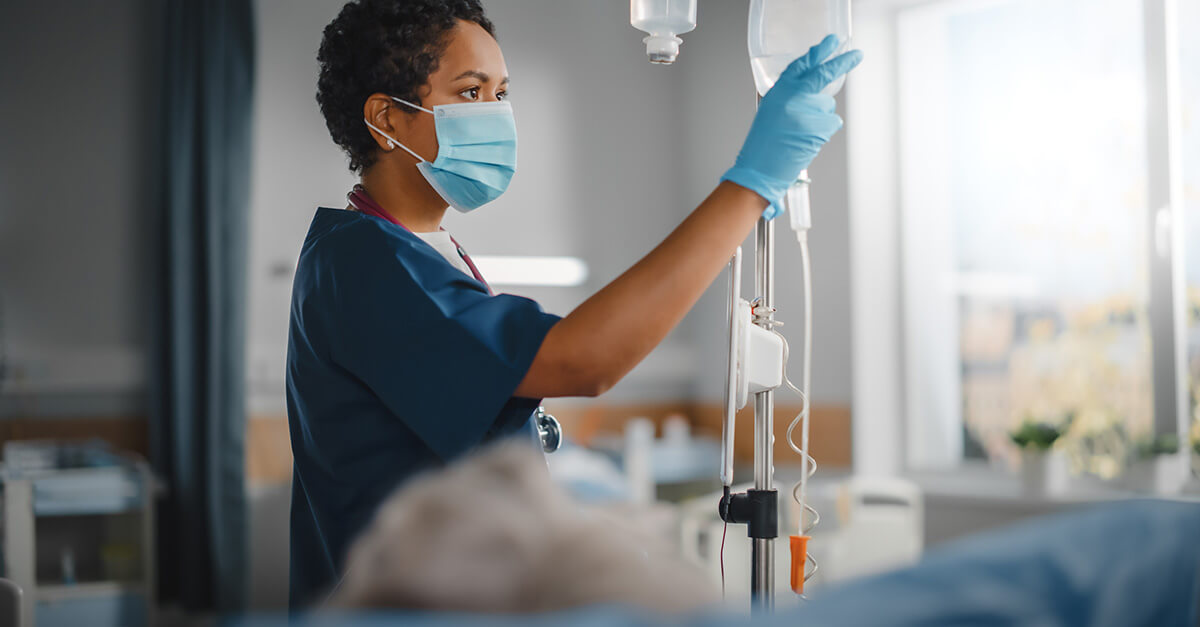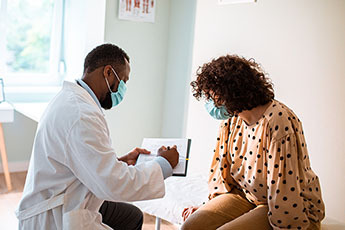Life after kidney removal: What happens after a nephrectomy?

A nephrectomy is a major surgery that removes some or all tissue from a patient's kidney. The most common reason for a nephrectomy is a tumor, usually caused by kidney cancer that has not metastasized (spread to other parts of the body).
In this guide, you'll learn what to expect following nephrectomy surgery for kidney cancer, with statistics, side effects, typical recovery times, and stories from real patients.
In the Inspire Kidney Cancer Community, members share their personal experiences of living with renal cancer and how to find support. This content should not be used as a substitute for professional medical advice, diagnosis, or treatment. As always, consult with your doctor before trying any new treatments or medications.
What to expect after kidney removal surgery
Kidney removal surgery (nephrectomy) is a common first-line cancer treatment procedure for kidney tumors that haven't metastasized (spread to other areas).
Depending on the size, location, and number of tumors, patients may receive the following:
partial nephrectomy (removal of the tumor that leaves part of the kidney intact and functioning)
simple nephrectomy (removal of an entire kidney)
radical nephrectomy (removal of an entire kidney, the adrenal gland, and neighboring lymph nodes)
bilateral nephrectomy (removal of both kidneys)
Partial nephrectomy is generally associated with fewer complications, less pain, and faster recovery times compared to full kidney removal.
These procedures may be performed using surgical abdominal incisions to remove the kidney (open nephrectomy) or with a small device, called a laparoscope, that is inserted into the abdominal wall (laparoscopic nephrectomy).
Evidence suggests laparoscopic kidney removal may result in faster recovery times and less pain compared to open nephrectomy.
When kidney cancer spreads before it's detected, nephrectomies usually aren't as effective. These patients may receive immunotherapy as a first-line treatment. Learn more about kidney cancer immunotherapy.
Recovery at home
Kidney removal is a major surgery that is performed in a hospital setting. If you undergo a nephrectomy, doctors will monitor your recovery for several days or longer at the hospital, then discharge you when you're ready to go home.
During your recovery period, you'll be asked to follow recommendations to allow your body to heal and prevent injury, which may include:
not lifting anything weighing more than 10 pounds
avoiding strenuous activities or exercise that makes you breathe hard or strain
taking care of the incision area and keeping it clean, dry, and protected, with fresh bandages
avoiding soaking in tubs
With approval from your doctor, you may be able to do light activities while recovering, such as:
getting up and moving around to relieve pain or encourage bowel movements
taking short walks
using stairs if needed
doing light housework
You can safely speed up your recovery by eating a healthy diet, doing light activity as recommended by a doctor or physical therapist, and getting plenty of rest and sleep.
Symptoms and side effects of kidney removal
Common symptoms after nephrectomy include:
pain in your abdomen or on the side where you had the kidney removed
bruising, swelling, or redness around the surgery site
shoulder pain if you had laparoscopy (radiating nerve pain from abdominal pressure caused by carbon dioxide gas used during the surgery)
constipation caused by pain medications
nausea that comes and goes
If you experience any of the following issues, contact your healthcare team:
your temperature is above 100.5°F (38°C)
your surgical wounds are bleeding, red or warm to the touch, or have a thick, yellow, green, or milky drainage
your abdomen swells or hurts
you experience nausea or vomiting for more than 24 hours
your pain does not get better when you take your pain medicines
it's difficult to breathe
you have a cough that doesn't go away
you're unable to drink or eat
you're unable to urinate
These symptoms could indicate a problem that requires further medical attention.
Nephrectomy recovery time
For most patients, pain, bruising, and swelling will noticeably improve during the first week at home after kidney removal.
Your overall recovery time after nephrectomy depends on factors like the type of procedure, your age and health status, and whether you follow post-surgery recommendations.
Many patients can resume most of their regular activities with doctors' approval after 4-12 weeks, but recovery time can vary significantly.
Kidney function is often affected by nephrectomy and may be reduced for approximately two years. Your medical team will monitor your kidney function following kidney removal.
Survival rates and kidney cancer recurrence after kidney removal
The goal of nephrectomy for cancer patients is to remove cancerous tissues and prevent cancer from spreading. And in some cases, kidney removal surgery can prevent kidney cancer from coming back.
Unfortunately, statistics suggest that approximately 30-40% of renal cell carcinoma patients who undergo nephrectomy will experience cancer recurrence or metastasis (spreading) at some point after the surgery.
In a 2013 study of open and laparoscopic partial nephrectomy, researchers found that:
overall, about 77% of patients who had their part of their kidneys surgically removed were surviving 10 years later
for patients who did not experience metastasis, the survival rate was around 90-95%
A separate study on radical nephrectomy for kidney cancer found similar survival rates for patients.
Living with cancer is a daily challenge, but for many people, hearing stories of other survivors is key to finding encouragement and strength in their own journey. Read kidney cancer survival stories.
Patient stories of nephrectomy surgery
While most patients recover relatively quickly from pain, it's possible to experience lasting pain after a nephrectomy:
“My husband had quite a large tumor attached to his kidney. Margins were clear and all scans since that have been clear. He is still suffering from sore and sometimes swollen testicles a year later. It's over a year since surgery so it's getting difficult to deal with at this stage.” Go to post
“My boyfriend experienced soreness and swelling for quite a while after his kidney was removed. He found that an anti-inflammatory helped him 100%. You could ask your doctor for a prescription.” Go to post
Nausea is not uncommon after kidney removal:
“I am 3 weeks post radical nephrectomy and am having severe bouts of nausea. I went to my doctor who tested to ensure that I wasn't anemic and also prescribed Zofran - which helps some, but more like keeping things at bay rather than getting rid of the nausea.” Go to post
“Three months after a laparoscopic radical nephrectomy, I am STILL experiencing daily problems with nausea in the morning, ringing in my ears, and dizziness. I keep relaying this information to my internist and he says, ‘You’ve been through a lot.’” Go to post
Some patients have blood pressure changes and other kidney function issues following nephrectomy:
“My nephrectomy was about a year ago. My internist warned me that I would experience BP fluctuations. My BP would go high and then very low. I was too weak to drive most of the time. I also had buzzing in my ears. This lasted for 4.5 months. I thought I would never feel good again. Hang in there, you will get better.” Go to post
Light walking and other activities approved by your doctor can help you deal with symptoms and recover function faster:
“Initially recovery will be rough, this is a highly invasive surgery. Key things get up out of bed, and get walking. You may have a lot of gas, and the walking will help you pass it. When riding in cars bring a pillow for the seat belt. Some of us experience extreme fatigue up to a year after surgery, regular exercise helps combat that.” Go to post
Kidney cancer survivors often find it helpful to exchange wisdom and tips from their experience:
“I am learning that renal cell cancer (RCC) does not react like other cancers and that not everyone's RCC tumor is the same. Only an oncologist that specializes in this type of cancer will be able to guide you through the myriad of decisions that you will need to make going forward. The good news is that there are many new therapies out there and new discoveries regarding treatment are being revealed every year. I am truly hopeful about my prognosis and have met many people who have been diagnosed with kidney cancer for over twenty years. I encourage you to talk with others who have a RCC diagnosis and start researching treatments.” Go to post
Want to connect with other people living with kidney cancer today? Visit the Inspire Kidney Cancer Community.
Sources
Disclaimer
Member comments have been lightly edited for length and clarity. This content is for general informational purposes only and does not necessarily reflect the views and opinions of any organization or individual. The content should not be used as a substitute for professional medical advice, diagnosis, or treatment. Please consult your healthcare provider about any questions you may have regarding a medical condition.




